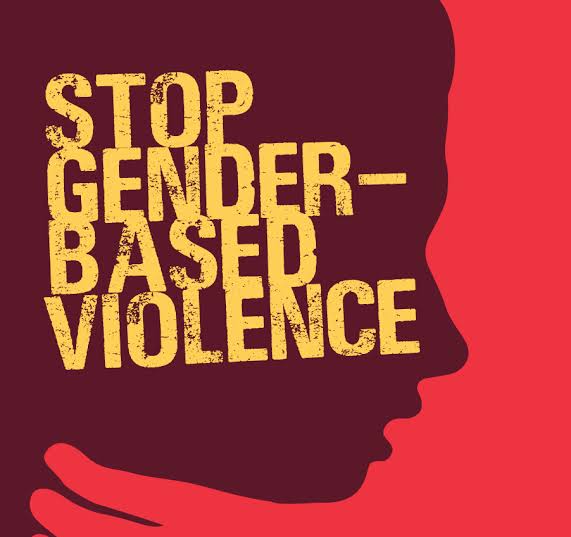By: Santana Simiyu
NAIROBI,Kenya,Dec, 1 – The United Nations is marking the 16 Days of Activism against Gender-based Violence from 25 November to 10 December 2021, under the global theme set by the UN Secretary-General’s UNiTE campaign: “Orange the World: End Violence against Women Now!”
Gender-based violence (GBV) is a widespread human rights violation which exists in all regions of the world and Kenya is not an exception. GBV takes many different forms, including domestic violence, sexual assault and harassment, child, early and forced marriage, sex trafficking and female genital mutilation.
GBV in Kenya, like other parts of the world, is a complex issue that has its root in the inequalities between men and women coupled with the general acceptance of violence to solve disputes. The impact of GBV is devastating as victims of such violence often experience life-long emotional distress, mental health problems and poor reproductive health.
For this reason, there is a need for a strong environment for the prevention of GBV and protection of survivors of GBV. However, the protection of survivors of GBV in Kenya is fraught with challenges.
The COVID-19 pandemic took the world by storm. During the break out of the pandemic, it was not only a health crisis but also a human rights crisis.
Government actors in Kenya faced overwhelming responsibilities as they designed, implemented and enforced new measures to prevent the spread of the infection. Some of the measures taken by the Kenyan government included a dusk to dawn curfew, restrictions on social gatherings, work from home, closure of schools and cessation of movement in and out of Nairobi, Mombasa, Kilifi and Kwale.
In addition to this, the whole justice sector including the National Legal Aid Service had scaled down all its operations; for instance, the judiciary was only hearing serious cases, including sexual and gender-based violence cases and defiance of national orders regarding the control of COVID-19 pandemic. The Chief Justice also gazetted Practice Directions on Electronic Case Management to guide the integration of ICT in judicial proceedings.
While these measures were necessary, this led to another pandemic of increased violence in homes or families. These include intimate partner violence (IPV) and child sexual abuse owing to forced coexistence and prolonged confinement with abusers.
Furthermore, there was new abuse triggered by stress due to loss of household income and livelihood. Additionally, there was a negative coping mechanism such as substance abuse. The poor economic impacts of the COVID 19 pandemic led to child- and forced marriage with related early pregnancies.
Though the judiciary sought to prioritise sexual and gender based violence these efforts were not adequate to meet the needs of women in abusive situations. In addition to this, legal services were considered non-essential in the beginning.
On the bright side, legal empowerment groups in the grassroots such as, community paralegals made various efforts to bridge the justice gap. While there were still very stringent lockdown measures, legal empowerment groups played a big role through helping women know their rights and navigate complex situations.
The legal empowerment methods used to address GBV in the grassroots were mainly legal assistance and other support services to women and girls in situations of violence. While many institutions in the legal field had shut legal empowerment, groups became the only recourse for women experiencing GBV.
However, it was not very rosy for the legal empowerment groups either as the physical distancing directives exposed the digital divide, thus making them rethink how they worked considering the majority of the people in the grassroots areas neither own nor have access to smartphones or computers.Also, this change brought about unexpected expenses for the use of protecting clothing such as masks.
Despite the many obstacles, legal empowerment groups found creative ways to work. Many legal empowerment groups in the grassroots have trust from the communities that they live therefore they built partnerships with chiefs, community elders and police.
The benefit of these partnerships was that they would get reports on GBV in homes.In turn the legal empowerment groups would educate the victims on the crimes as provided in statutes to help them in reporting the matter in police stations.
This is because women face challenges in reporting due to a lack of knowledge on the exact terminology to use,for example some women would report domestic violence at police stations and police would say that there is no crime such as domestic violence.In this regard legal empowerment groups would advise them to report it as assault. In addition, they would advise the women to get all the necessary evidence such as the medical examination report.
The community paralegals’ proximity to communities proves useful in serving marginalised communities beyond the reach of state support, on issues such as gender-based violence, amongst many other issues. This experience can be helpful in informing law, policy and practices.
This confirms the need to expand and support the presence of community paralegals. Above all this confirms the need to recognise and finance the work they do. Therefore as we build back our society from the effects of the pandemic and as we color the world orange during the sixteen days of activism, there is a need to invest in legal empowerment organisations as they play a significant role in fighting gender-based violence.
The writer, Santana Simiyu, is an advocate of the High Court and the Programme Officer equality and inclusion, civic space, digital rights, and independent media at the International Commission of Jurists-Kenyan Section.
Want to send us a story? Contact Shahidi News Tel: +254115512797 (Mobile & WhatsApp)


